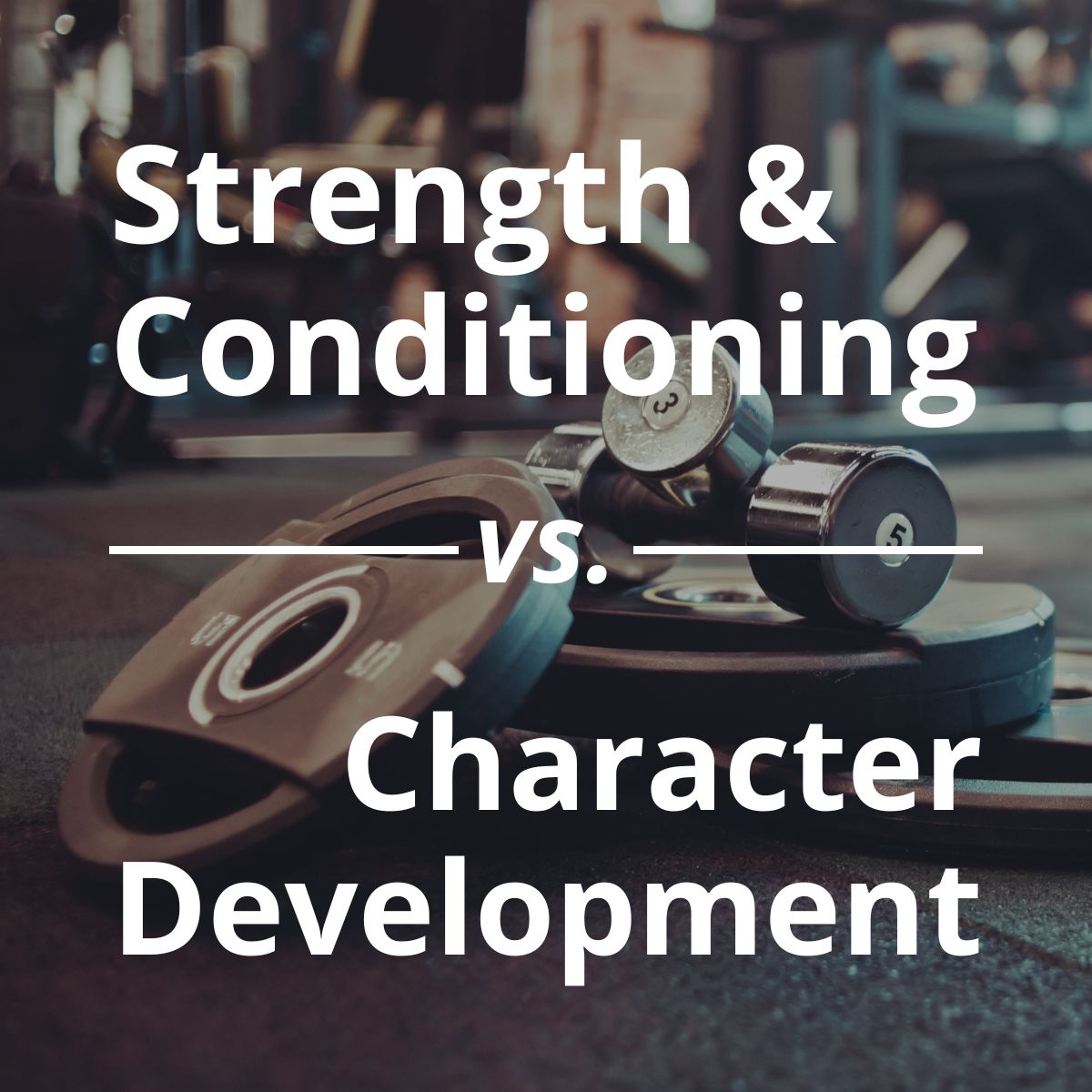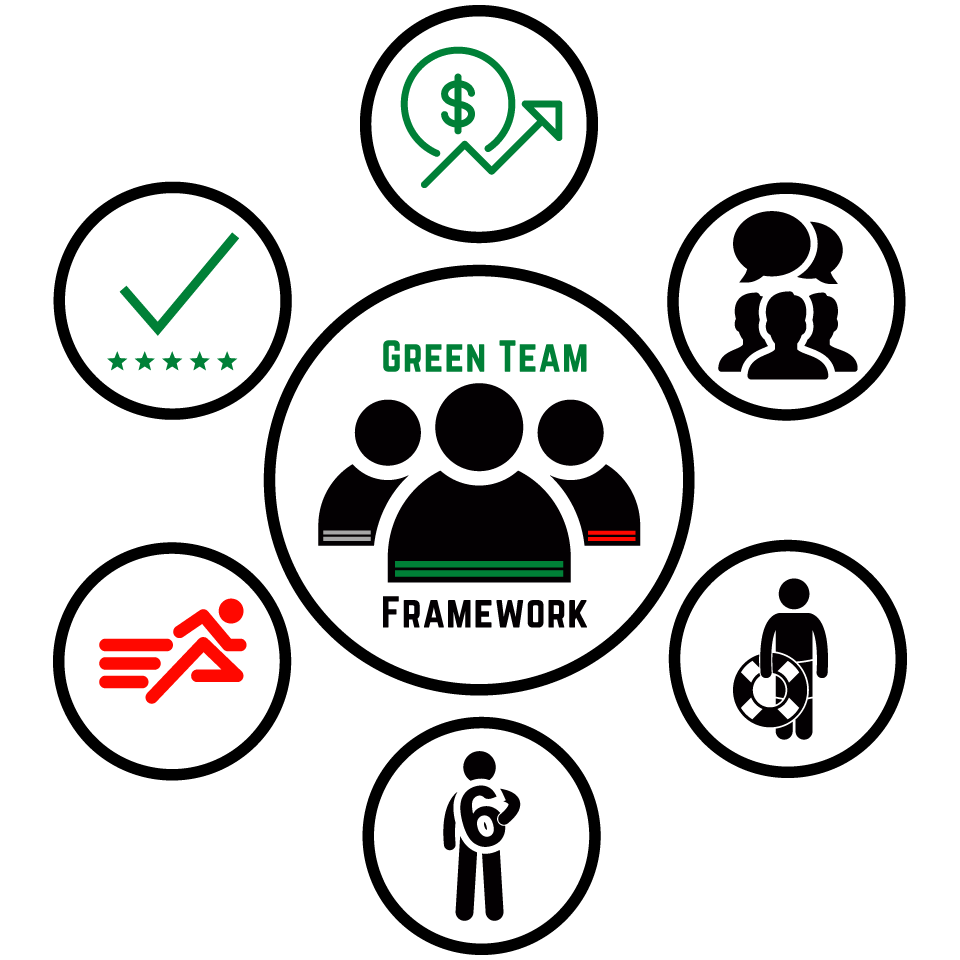Home / Blog / Character Development /

I’m sure you’ve heard similar remarks. I’d imagine you’ve even said similar remarks at various points of your coaching.
It opens up a question we have to wrestle with, if sports are more “mental” than “physical” then why does our player development reflect the opposite?
The Leadership Gap
If you asked a coach about their strength and conditioning programs they’ll likely have in-depth plans. They’d readily share strength training schedules, workout regimens, and nutrition plans. These would be extensively mapped out, and specific to positions and players. I bet if you then asked them about the specifics of their leadership and mental development programs, you’d find most lack structured programs and just “wing it” when it comes to teaching leadership skills. This is a major gap in the priorities when it comes to developing well-rounded athletes.
And this seems contrary to the theme of sports being more mental than physical.
Why Leadership & Character Matters
The mentality of our players is a direct reflection of their character and leadership. Leadership is simply character on display and in action.
People, especially players, don’t fully understand the role of character in sports because they often view it through a limited lens.
Character’s 2 Parts: Moral & Mental
The mentality of our players is a direct reflection of their character and leadership.
Moral Character
Moral character is connected to one’s integrity and it’s what most people think of when referencing character. We emphasize the need to have good character, which in turn means being a good person. A person who is respectful, kind, polite, has good manners, etc.
This is important, but understandably in sports one could ask, “how does that help me win games though?”
As a result, it doesn’t get the focus and attention it deserves.
Mental Character
We need to be aware of the other half of character. The other half is one’s “mental” character which is tied to their performance.
You can have incredible moral character but lack all the mental character needed to be successful in sports.
Just because you’re a good person (moral character) doesn’t mean you have the drive, determination, work ethic, commitment, consistency, passion, resiliency, toughness, detail-oriented, etc. (mental character), to be successful in sports.
Look at the list I just shared:
- Determination
- Work Ethic
- Commitment
- Consistency
- Passion
- Resiliency
- Toughness
- Detail-oriented
Those are CHARACTER traits. It’s those mental character traits that coaches have been referencing when saying that “90% of the game is mental.”
When we look at player development it’s important we pay close attention to the relationship between the mental and physical.
Character Development is a Force Multiplier
There’s a famous quote, sometimes attributed to Abraham Lincoln, about chopping down a tree. It goes something like “If I had 6 hours to cut down a tree, I spend the first five sharpening my ax.”
Axes are a force multiplier. Even the biggest and best lumberjack is going to take much longer to cut down a tree with a dull ax as opposed to a sharp one.
We need to hold on to that idea as we develop our players. There is a tendency to work on the physical aspect of your players’ development first. We NEED players who are bigger, stronger, and faster to win.
The problem is, there’s a good chance your problem isn’t lacking players who are bigger, stronger, and faster. It’s lacking players who have the drive, determination, passion, consistency, work ethic, resiliency, and toughness to become bigger, stronger, and faster.
Your time and effort would be better spent developing mental character first.
Focus on building mental strength with deliberate effort first. Then, you’ll find that becoming bigger, stronger, and faster will become much easier
The mental precedes and fuels the physical.
The teams we work with that are bigger, faster, and stronger than everyone else are also the teams that work on the mental aspect more than anyone else. This is not a coincidence.
Implementing Leadership & Character Development
So how can schools and coaches implement effective leadership and character development within their athletic programs? Here are some best practices:
- Commit to making leadership and character development an integral part of your program. The target we share with our coaches is 12 leadership/mental sessions a year. By year we mean a full calendar year, in-season and off-season, with each session lasting around 30 minutes.
- Assign the responsibility to a coach or select individual to lead those 30 minute leadership sessions. Have them own it, manage it, and lead it. This will help create consistency and accountability as they’ll help make sure it doesn’t get missed.
- Put the sessions in your calendar. Make sure everyone has access to the calendar so they can begin planning around it. This also holds everyone accountable for sticking to them.
- Find a dynamic leadership program/curriculum that is tested and proven to be successful. Putting together a curriculum on the fly, randomly finding things online, often the night before won’t generate the impact and momentum needed to develop impact and transform athletes.
- Make sure the program is engaging and exciting. You will have the most success if/when players are looking forward to your leadership sessions. If they aren’t, find a new program and/or elevate your teaching of it.
- Celebrate leadership achievements and progress through special awards and earning status levels.
- Continue to reinforce the learnings throughout practice, games, and conversations.
Unlocking Potential
Mental training and leadership skills unlock potential and multiply talent in athletes. Imagine the impact if leadership and character development programs were as detailed and robust as strength and conditioning regimens. Confident and influential leaders can motivate teammates to accomplish more than they ever thought possible.
It’s possible there’s another level of potential in your team and it’s most likely in their mental. If you’re looking for a place to start, start there.
Have fun and #LeadEmUp




